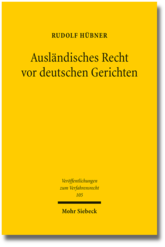2015 will be a landmark year for the debate on ADR & ODR. The Directive on Alternative Dispute Resolution (ADR) will have to be transposed into national legislation by 9 July 2015; the Online Dispute Resolution (ODR) platform will become operational six months later.
The conference, jointly organized by the ERA and the MPI Luxembourg and taking place in Trier, will discuss at an early stage the existing proposals for transposing the requirements of the ADR Directive into national law.
Key topics
-
In-depth analysis of the legal and practical issues regarding the implementation of the Consumer Alternative Dispute Resolution Directive
-
Forthcoming changes after the entry into force of the Regulation on Consumer Online Dispute Resolution
Speakers: Karin Basenach, Director, European Consumer Centre Luxembourg; Juan Bueso, Legal Adviser, European Consumer Centre Ireland, Dublin; Alessandro Bruni, Attorney-at-Law, Professional Mediator and Arbitrator, Rome; Dr Pablo Cortés, Attorney-at-Law, Senior Lecturer, School of Law, University of Leicester; Christoph Decker, DG Justice and Consumers, European Commission, Brussels; Marie Luise Graf-Schlicker, Ministerial Director, Federal Ministry of Justice and Consumer Protection, Berlin; Professor Burkhard Hess, Director, Max Planck Institute for; International, European and Regulatory Procedural Law, Luxembourg; Professor Christopher Hodges, Professor of Justice Systems, University of Oxford;Ulrike Janzen, Head of Division, Federal Ministry of Justice and Consumer Protection, Berlin; Nathalie Jouant, Attachée, DG Economic Regulation – Consumers & Entreprises Unit, FPS Economy, Brussels; Augusta Maciuleviciute, Senior Legal Officer and Consumer Redress Leader, BEUC, Brussels; Dr Rafa? Morek, Adjunct Professor, University of Warsaw, Of Counsel, K&L Gates LLP, Warsaw; Nicole Nespoulous, DG Competition Policy, Consumer Affairs and Fraud Control, Ministry of Finance, Paris; Marie-Josée Ries, Director, DG Internal Market, Ministry of Economy, Luxembourg.
Click here to see the program , here for practical further information.
Language: English
Organisers: Dr Angelika Fuchs, ERA with the support of Professor Burkhard Hess, Max Planck Institute Luxembourg
Event number: 115D31
